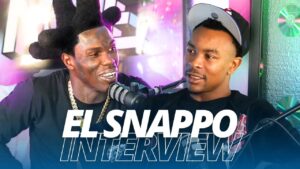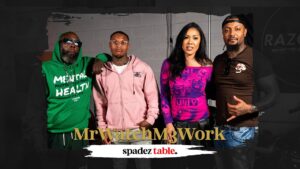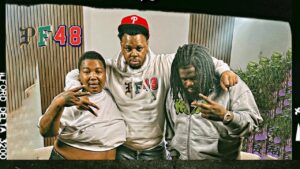On a recent episode of Bag Fuel, J.I.D sat down with the hosts for a wide-ranging conversation about his approach to making music, the state of hip-hop, and his own evolution as an artist.
During the discussion, J.I.D reflected on how many artists today record by “punching in” line by line instead of writing full verses, a shift he connects back to the influence of figures like Jay-Z and Lil Wayne, who popularized non-writing methods. While acknowledging their unique ability to succeed with that style, he pointed out that not every rapper can replicate it effectively.
The Atlanta rapper also commented on how accessible recording has become. With affordable equipment and even mobile options, he noted that anyone can set up a studio, which has expanded opportunities but also created oversaturation. He contrasted this with earlier eras, when artists had to be vetted through DJs and gatekeepers before releasing material.
J.I.D spoke about his own recording process, explaining that he has long preferred to work independently. He learned to record himself early in his career using Pro Tools and estimates that most of his albums have been tracked largely on his own, with additional help arriving later in production. His DJ also doubles as his producer, forming the foundation of his sound.
The conversation touched on the repetition in modern music, with J.I.D expressing that trends often lead to similar-sounding records. He added that collaborations with a single producer can help artists develop a more distinct sound, and also spoke on financial considerations in splitting royalties that encourage these types of partnerships.
Later in the interview, J.I.D discussed his verse for Freddie Gibbs on an Alchemist track, describing how he wrote much of it on the road before finishing at home. He emphasized the respect he has for both Gibbs and Alchemist, noting that the record was one of several collaborations he and the producer have in the vault.
The episode offered insight into J.I.D’s philosophy on writing, recording, and navigating the modern music landscape, while situating his process within broader conversations about the current state of hip-hop.






